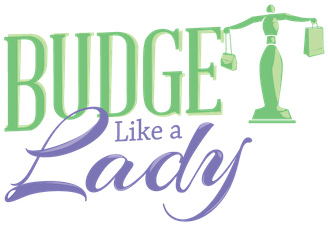Top 5 Money Myths Banks Want You to Believe

Slay Your Fear of Losing Money in the Stock Market
September 17, 2018
Why I Refuse to Save a Lot of Money for My Kid’s College Fund
September 24, 2018Estimated Reading Time: 6 minutes
Have you ever walked out of a store thinking you just got a great deal? I mean, the sale at the department store was SO GOOD that you could not pass it up! Happens to me all the time. The worst is when the banks want you to fall for their smoke and mirrors and sign up for extra financial items that you may not need. It may sound good at the time, but the bank is the one who wins in the end with your money. Here are my top 5 money myths that I want everyone to stop believing.

Money Myth #1: Bundle your Mortgage and Car Payment to Reduce Bills!
So instead of having 2 bills to pay every month, the bank has this awesome idea to consolidate your bills into just 1 bill. Sounds nice, doesn’t it? Less mail to deal with, fewer bills to pay, and you get to kill 2 birds with one stone…so to speak.
But do you really want to pay 30 years on your car? The average car loan is for 60 months (5 years). Within 5 years you will be done paying your car, not 30 years like the bank will suggest. That will be 30 years of additional interest payments on a car that you could have owned in 5.
Not today, Mr. Bank…
Money Myth #2: Keep a Credit Card Balance to Increase Your Credit Score!
I get the need to have a great credit score. If you are looking to make a big purchase soon that would require a loan, a great credit score will get you the best interest rate for that loan. I had a credit score of 598 before I started my financial freedom journey and I remember working hard to get my credit score up.
Sorry banks, but you don’t need to keep a running balance on your credit card to build your credit score. This is what the banks want you to believe because they get more interest fees from you. The less you pay on your credit cards, the more they make. Your credit score is made up of 5 parts, according to myFICO:
- Payment History: on-time and late payments
- Amount Owed: how much do you owe and do you have too much revolving credit
- Length of Credit History: how long have you had these credit accounts
- Types of Credit Used: home loans, auto loans, etc
- New Credit: new credit accounts being opened
A credit score is just a way for the banks to know if you have a history of paying creditors back. This has nothing to do with keeping a credit card balance. You will still increase your score if you pay the balance off every month.
FUN FACT: According to CNN Money, in 2016 banks collected over $15 Billion in overdraft fees from its customers. Yes, that is BILLION with a B…no typo. So why do they need more of our hard earned cash? Just sayin…
Money Myth #3: Save Money by Consolidating Your Student Loans!
This is the same concept as Money Myth #1. Combining all your student loan payments into just 1 payment. But banks like to play with words a little…consolidating is NOT the same as refinancing.
If you are looking to have lower student loan payments, then you want to refinance your loans. Refinancing student loans will lump all the payments together with a cheaper interest rate. Be aware of any additional fees that may arise from refinancing student loans.
Money Myth #4: You’re Approved to Buy a Mansion!
I remember when my husband and I were house hunting for the first time. We started looking before we were pre-approved for a loan (I do not recommend that), but we were excited to buy our first home! We found this cute, modest home (which we still live in, 8 years later), it was reasonably priced and it was a nice size…anything was bigger than the little apartment we were living in at the time!
Anyways, we went to the bank to see if we can get a loan to buy the house and guess what…WE WERE APPROVED…for an outrageous amount! We could have bought our house three times and still have money left over.
Moral to the story, get only what you can afford. Houses come with unexpected expenses along with big mortgages, so you need to make sure you have room in your budget to save for those things. Always figure out what you can afford, not what the bank wants you to pay. The bigger the mortgage, the more interest the banks receive from you. And I know mortgage interest is tax deductible but it may not always be worth it. Check with your CPA (Certified Public Accountant) before making any big money moves like that.
Money Myth #5: Whole Life Insurance is ALWAYS better than Term Life Insurance!
Now I know I haven’t talked too much about this on the blog, but it has been brought up a lot with my coaching clients. The bank will always want to sell you whole life insurance. The perks of whole life sound great! You get life insurance coverage until the time you die in your very very very very very old age at an expensive monthly cost.
Most of the time, not all the time but most, you do not need whole life insurance you just need term life insurance. Term life insurance is good only for a certain term or amount of years.
For example, if both spouses are working and have kids, then term life insurance may be the better option. Term life insurance is cheaper. The main reason for life insurance is to cover your portion of expenses if anything were to happen to you. Expenses during the time when the kids are still living at home versus when the kids are out of the house can change drastically and you may not need that big coverage anymore.
Get the right coverage that you will need for the appropriate amount of time. Talk to a Certified Financial Advisor for the plans that best suit your family.
Ending on a lighter note, I don’t tell you all these things because I don’t like banks. I tell you these things because I know that you work hard for your money as I do, and I don’t want you to fall victim to these traps as I did. Believe it or not, I almost fell for #1 (very close to writing on the dotted line), I definitely fell for #2, and I came close to falling for #5. Lol!
If you need some help navigating your path to financial freedom, I would like to help. As always, if you found this post helpful, please share it with your friends and family.
Which money myths, if any, did you fall for or almost fall for?

